Enab Baladi Exclusive
With the birth of newspapers, radio stations, television channels and websites during the past five years, Syrian media in all its forms has faced common problems, some intentional and some spontaneous. Among these problems is the negative discourse adopted by some media outlets towards certain social groups, ethnicities and religions in the country, especially in the al-Jazira area which includes various ethnicities and religions.
These media outlets not only misrepresented the truth, but also deepened divisions between people in the area. They took advantage of the general atmosphere in the area to highlight events that aimed at achieving the media outlet’s goal even at the cost of harming their audience.
Yet this phenomenon cannot be generalized to all the media outlets covering issues relating to the al-Jazira area. Arabic-Kurdish newspapers and radios emerged that contributed to strengthening cooperation between residents in the area by focusing on issues, discussions and exchanges that highlighted points of commonality.
Enab Baladi conducted an opinion poll on its website in which 1560 readers participated. The poll asked questions about the effect of Syrian media on Arab-Kurdish relations throughout the Syrian revolution. According to the poll results, 45% of participants agreed that local media outlets caused a rift between the Arab and Kurdish people of Syria while only 10% said the media brought different ethnic groups together. Finally, 9 % said the media played a neutral role in this area.
According to statistical data gathered by the “WEEDOO” institute, which specializes in monitoring media outreach, 36 websites are active in al-Hasakah province, and of them only 23 websites are local. The remaining 13 websites are active locally and nationally. Of the websites, 26 are private projects while 10 belong to military or political actors.
The languages of the websites are divided as follows:
“Enab Baladi” and “ARTA FM” Join Hands to Break Stereotypes
In the al-Jazira area, several problems have been exacerbated by the Syrian war, some of which were misrepresented and distorted in the news.
These media outlets fail to point out the positive relations between the area’s residents and limit their coverage to problems based on those media outlet’s political viewpoints, which has added to divisions and rivalry between different groups.
Media Inspired by the Current Context
Enab Baladi and ARTA FM have launched joint a media project, which came about as a way to highlight cases of co-existence in the area and restore what politics has destroyed. The projects aim at entrenching the idea of accepting the other, a value both organizations adopt as part of their principles and ethics.
The joint media project is a new model that is otherwise absent in Syrian new media generally and in al-Jazira area in particular. According to Amar Ziyadeh, editorial manager at Enab Baladi, “Coordination between new media outlets in Syria is weak and there are few experiences of coordination between them.”
Ziyadeh clarified that partnerships between these different media outlets play an important role, “Especially when relations are established or a joint project is agreed on between an Arab and Kurdish media outlet, in light of the conflict that has emerged and which various actors in the conflict have tried to exploit.” He considers this “an achievement in itself and a clear message that the voice of civil society is able to create change and entrench values of co-existence between all groups in Syria.”
According to Mohammad Ramadan Hasan Safqan, executive manager of ARTA FM, the situation in al-Jazira and the ramifications of the ongoing war, which has destroyed much of what was built in previous years, have pushed media institutions developed in this area to seek a way to salvage what has been destroyed. He said, “The importance of the media work with Enab Baladi is that it confirms co-existence and acceptance of the other as there are people who are destroying these relations, and media partnerships confirm the importance of these relations and develop them.”
Joint Features and Investigations That Include the Residents of Al-Jazira
The two institutions have cooperated on several joint media projects including six features and investigations, which are considered a new method that new Syrian media has not given much importance to in the past five years. The features focused on social, economic and professional relations such as the intermingled languages of the area, relations between in-laws, trade and relations between Kurdish and Arab school children.
Shirine Ibrahim, a presenter on ARTA FM, spoke about the importance of these joint projects, “Many of the media outlets that have emerged on the margins of the Syrian revolution were distorted after they were established without media experience, and a clear sectarian discourse appeared with no efforts to hide it. Enab Baladi and ARTA’s efforts to deal with these difficult issues by discussing them not once but several times cannot easily change reality but they can contribute to reducing the chaos and distortion.”
Safqan added, “By working on these issues, we found that they generated positive outcomes. For example, it increased confidence between traders and improved relations in the schoolyard, which brought together Arab and Kurdish students” as well as “strengthening relations and the spirit of co-existence between students, such as by focusing on performers who sing in more than one language in the area.” This is something that was not visible during the period of Baath Party rule or during the events of the past five years.
Amar Ziyadeh sees that, “Many of the attitudes that some groups in the area take regarding other groups are based on their ignorance of the other and the build-up of inaccurate images that the media has created or stories that are circulated by parties in the conflict. So these features are an attempt to simplify issues, introduce the audience to what they are ignorant about, and avoid stereotypical representations to open a space for dialogue and discussion and voicing opinions regarding specific issues by both sides.”
The Syrian Citizen is the Primary Target
Individuals are the target media outlets should aim to serve so that people can make informed opinions and satisfy their natural need to have accurate information.
According to Shirine Ibrahim, the joint media features by Enab Baladi and ARTA FM were chosen with some hesitation because they are sensitive issues. “We dealt with the issues using a Syrian touch, without consideration for any other form of belonging, as the main aim of these features is the Syrian man or woman.”
The rule of a single party that “continued for 50 years was sufficient to destroy the humanity inside us,” Shirine explains. “So Arabs and Kurds are working on joint issues together so they can contribute in developing the individual and helping him to find his way… The features focused on the Syrian man or woman only, appreciating their multiple identities, addressed their minds and giving them the product of the two institutions’ work, whether concrete conclusions or accurate information on which conclusions can be built.”
Summarizing these features, Amar Ziyadeh said, “We found that co-existence and relations between the different groups in al-Jazira are simpler than we thought, and these relations are stronger and more solid than political disputes or other differences.” He gave an example, “The groups in the area intermarry, they are united by a unique artistic blend, they carry out economic exchanges, their children study together and they grow up in the same neighborhoods… These examples clarify how co-existence is simpler and stronger than media outlets represent.”
Professional Ethics Are the Basis for Work
The al-Jazira area is undergoing instability in the political, economic and media fields, which has certain ramifications for the social groups in the area.
Prior to the revolution, all the social groups in the area were not visible in the Syrian media, as the Syrian people simply received what the sole ruling party wished to show them.
Shirine said, “Politicians from all groups in the area made statements such as al-Jazira is Kurdish or Kurdistani or Ashuri or Syrian Arab. But we focus on the many years of co-existence as it is a serious injustice for the media to ignore those years and only focus on the current circumstances that the area is experiencing.”
“At the start of the Syrian revolution, everyone – Armenians, Arabs, Assyrians, Kurds and Circassians – took to the streets of al-Jazira. How were these relations damaged and who is behind it?” Shirine asks. She adds, “So the media must be daring and play a role in facing the existing problems with a conscious discourse that does not promote hatred and violence.”
How Do Al-Jazira’s Media View the Media Work Between Arabs and Kurds?
Shayar Khalil, Kurdish Syrian Journalist
In light of the multiple opposition media institutions in Syria and the absence of professional oversight of these institutions, a media partnership between Arab and Kurdish media outlets in the al-Jazira area became an important issue, which professionals and those working in the outlets must engage with. An ethics code must be established, uniting more than one Syrian institution, Arab or Kurdish, to oversee these institutions. Especially as the media plays a major role in creating public opinion, communicating the truth to the public, and criticizing and holding public institutions accountable. These are all part of the rules of professionalism and objectivity and are absent in the Syrian opposition media as a whole.
Instituting a shared ethics code between these institutions would enable us to avoid engaging in political struggles, bringing them into the media and dividing our audience by presenting biased news. It must be noted that Kurdish media has taken an important step in the emergence of many new radio stations, newspapers and websites in al-Jazira. We must take a bigger professional step by drawing up an ethics code among these media institutions and unbiased Arab institutions to create an informed general opinion among Arab and Kurdish audiences.
Mohannad Al-Kattaa, Researcher and Arab Syrian Journalist
I am with encouraging joint media work between the people of Syria of all backgrounds as this contributes to reaffirming our openness to everyone and contributes to increasing understanding between Syria’s people of all affiliations, identities and cultures.
But any media partnership must set specific joint goals and should not be exploited by either side to promote political aims that serve a specific ethnic or sectarian identity to the exclusion of the other. Such partnerships must be completely devoid of party or class ideology and should strive to use a shared terminology. These partnerships must adopt a unified reading of the past, present and future of the Syrian state while respecting differences of opinion regarding tangential issues that do not affect the Syrian people’s vision or their aim to achieve a democratic, united and free country for all Syria’s people.
Serdar Al-Mala Darwish, Kurdish Syrian Journalist
Within the media field, the media profession and media studies, there is no such thing as an Arab-Kurdish partnership in journalism. Specialized journalism exists but there is no journalism at the ethnic or racial level.
The al-Jazira area has not received media support generally and few institutions supported the area using the excuse that it is under regime control or under the control of the Democratic Union Party and thanks to the actions of several activists who played a major role in distorting the image of the area.
We can say that media work has happened at the local level, and media work in al-Jazira focused on the level of issues, so we cannot call it a Kurdish-Arab media partnership.
At the national level, there are several institutions that have Arab and Kurdish journalists. It is very normal to find many Kurdish journalists working in several Arab institutions, whether at the level of journalistic investigations, news reporting or editing.
If there were real media cooperation, it would be reflected in Kurdish-Arab relations because the media plays a major role in this area. Given the existence of Kurdish-Arab sensitivities, if we say there is an Arab-Kurdish media partnership, we minimize the role of the media or suggest that it plays a negative role without producing anything. I see no joint media or cooperation that is supposed to bridge the gap between the two sides.
Sasha Al-Alo, Syrian Researcher and Media Activist
In principle, the idea of Arab-Kurdish cooperation is a necessity, especially as the media messages of both are directed at an audience (Arabs and Kurds in al-Jazira) that shares the same geography and suffers from the same problems in the current context despite their ethnic differences.
This cooperation may reduce the intensity of the political tension that has pushed some media outlets, Arab or Kurdish, to become political platforms that feed ethnic divides rather than reducing them.
On the other hand, the political and military reality of the Autonomous Administration, which is imposed by the Democratic Union Party (PYD), imposes restrictions that constrain both of them, and in some cases negatively affect the performance of some Arab media outlets active in al-Jazira in terms of their reporters’ activities or the style of journalistic coverage.
The Professional Code of Conduct Within Arab and Kurdish Media Outlets
Twenty Syrian media outlets including radio stations, print and visual media participated in launching a professional code of conduct to organize their media work and help achieve a unified vision for new Syrian media.
These local media outlets rose to prominence with the start of the Syrian revolution and worked to cover issues happening on the ground, bringing to light the Syrian regime’s practices against civilians and residents by documenting events during the past five years of the revolution.
As soon as this code of conduct was announced in September 2015, 17 other media outlets announced they would also adopt the code, seeing it as a way to “confront the threats and violations they are exposed to in their work, with commitment to the reputation and integrity of journalism.”
These institutions launched their initiative under the motto, “Towards A Professional Syrian Media” and defined their primary goal as “building Syria’s media and professional future, reducing misrepresentation, lying and fabrication, and giving all groups in Syrian society the opportunity to express themselves through the media.”
With the start of the Syrian revolution, many Syrians turned to establishing new media publications and engaging in media work freely far from security and censorship apparatuses.
In the face of the proliferation of these institutions, audiences following Syrian affairs began to have very different perspectives on them, with some satisfied with the media and others who criticize its low standards. These mixed attitudes had an impact on the ethics of journalistic work and comprehension of these ethics by the audience or and those working in the field of journalism.
It became essential for a group of different media institutions covering Syrian affairs to establish this charter, which serves as a disciplinary mechanism for media work.
The organizations involved in launching the charter summarized its values in eight clauses that include a series of principles, which all media institutions that signed the charter must adhere to in all their production and coverage.
The charter focuses on the principles of professional journalism, from precision, honesty and credibility of information to not discriminating against segments of society based on religion, sect, ethnicity, language, gender, culture or color. These are issues that have come up in many media outlets in recent years, as well as lack of respect for freedom of opinion, belief and expression. The charter also calls for strengthening participation and communication between media institutions and audiences.
Journalists Association Brings Together Syrians of Different Affiliations
In February 2012, a group of Syrian journalists established the Syrian Journalists Association. They supported the revolutionary movement in Syria from its outset. Many other journalists working for new media outlets soon joined the Association when it was announced.
Sakhir Idris, a member of the association, said, “The association includes Arabs, Kurds, Turkmen, Armenians and Circassians, and it is considered an inclusive institution for all Syrian journalists regardless of race, ethnicity, color, religion or sect as it looks for what we all share – national belonging – far from any other affiliations.”
According to Idris, the role of Syrian journalists is to work towards “the Syrian state that we are all searching for, because we want to build an inclusive identity and to strengthen national identity inside our institutions, and we pay no attention to the affiliations of any journalist whether they are Arab, Kurdish or Armenian.” Idris asserted, “The association’s identity is the identity of Syria and it works primarily to strengthen national identity like any other Syrian institution.”
Idris added, “The importance of the association lies in the fact that it builds a network of relationships and an exchange of expertise and opinions within a single, inclusive professional framework by accepting diverse opinions – this is one of the most important elements and standards that we must strive for.”
Media cooperation between Arabs and Kurds, according to Idris, “can contribute to addressing misconceptions held by people on both sides, which have contributed to distorting the relationship and deepening misconceptions.”
What Can Media Cooperation Between Arabic and Kurdish Media Outlets Achieve?
New media outlets in Syria are very diverse, whether local focusing only on Damascus and its rural outskirts or the central areas of Homs or Hama, or national offering broader and more inclusive coverage that goes beyond Syria’s borders.
Several Arabic and Kurdish newspapers and radios have covered events in al-Jazira despite the area’s linguistic diversity and its different social groups.
Some partnerships between Arabic and Kurdish media institutions have emerged as part of the journey these media institutions have gone through in recent years.
Enab Baladi asked several media professionals in al-Jazira who have covered events in the area for their opinion regarding the importance of this joint work and the goals it can achieve in terms of bringing viewpoints closer or pushing them further apart.
Walid Rashid, a former editor in the Media Directorate of the Autonomous Administration, told us, “Successful media work is work that can be developed and renovated and is able to keep up with developments minute-by-minute.”
Regarding the importance of cooperation between Arab and Kurdish journalists, Rashid pointed out, “Cooperation in the media in general, and in the area of al-Jazira especially, is very important in order to find common ties and highlight them to the people of the area. Such cooperation must contribute to the area’s development and communicate the facts to all groups in this area.”
Meraal Barakat, who works for the Kurdish radio station Dengi Bijifro, commented, “When we see a Kurdish reporter or journalist working in an Arabic media outlet or the reverse, we find that this work contributes to strengthening the principles of co-existence and of accepting others, whether the institution or news agency is Kurdish or Arab.”
According to Barakat, achieving cooperation between different media outlets requires “every Syrian media outlet to be open to other outlets and accepting of the other side. They must broadcast programs in different languages and dedicate time to broadcasting in other languages because that will benefit the Syrian and Kurdish people as a whole in accepting one another.”
The media experiences of the past five years are still young, in relation to the Syrian media field as a whole. It is necessary “to open more channels of communication between non-Kurdish or Arab institutions that communicate a real media message that helps the Syrian people to achieve peaceful social co-existence.”
On the other hand, Judi Artish who works in Walet FM sees that such media cooperation plays a minor role. He commented, “Journalism in the al-Jazira area faces great difficulties due to the different languages used in the area, which has an impact on news broadcasting.”
Despite the shortage of examples of cooperation and joint coverage between Kurdish and Arab media outlets, especially when it comes to highlighting issues of concern to all groups in the area, Shahnaz Othman, the co-chairman of the Union for Free Media, is of the view that “the media scene in the al-Jazira area is taking its first professional steps. There should be more media cooperation, between all forms of media, in order to provide the best representation of reality in Rojava (north eastern Syria) and of all its groups.”
Othman adds, “When speaking about Rojava, we cannot reduce the issue to Kurds or Arabs only, as all the people and social groups present in the area are part of the mosaic that is the al-Jazira area.”
Shiyar Omar, a reporter for al-Etihad Press in al-Jazira, said, “The important thing in the end when it comes to media work generally or jointly between Arab and Kurdish media outlets is to achieve excellence and respect professional standards that we should adhere to in all media domains.”
Juan Sako, the editor-in-chief of the “Voice of Kurdistan” newspaper, highlighted something all the other journalists did not mention, “Joint media work is an expression of values that can lead to a free democratic society and help solve problems between Arabs and Kurds and end the marginalization of social groups, by raising the issues and concerns of both sides in the al-Jazira area. Such cooperation also plays a role in contributing to cultural and intellectual exchange, bringing order to societies, denouncing discrimination and removing the discriminatory one-dimensional Baathist culture that was previously entrenched in the area.”
This file is prepared by Enab Baladi newspaper collaboration with Radio Arta FM
if you think the article contain wrong information or you have additional details Send Correction
النسخة العربية من المقال
-
Follow us :











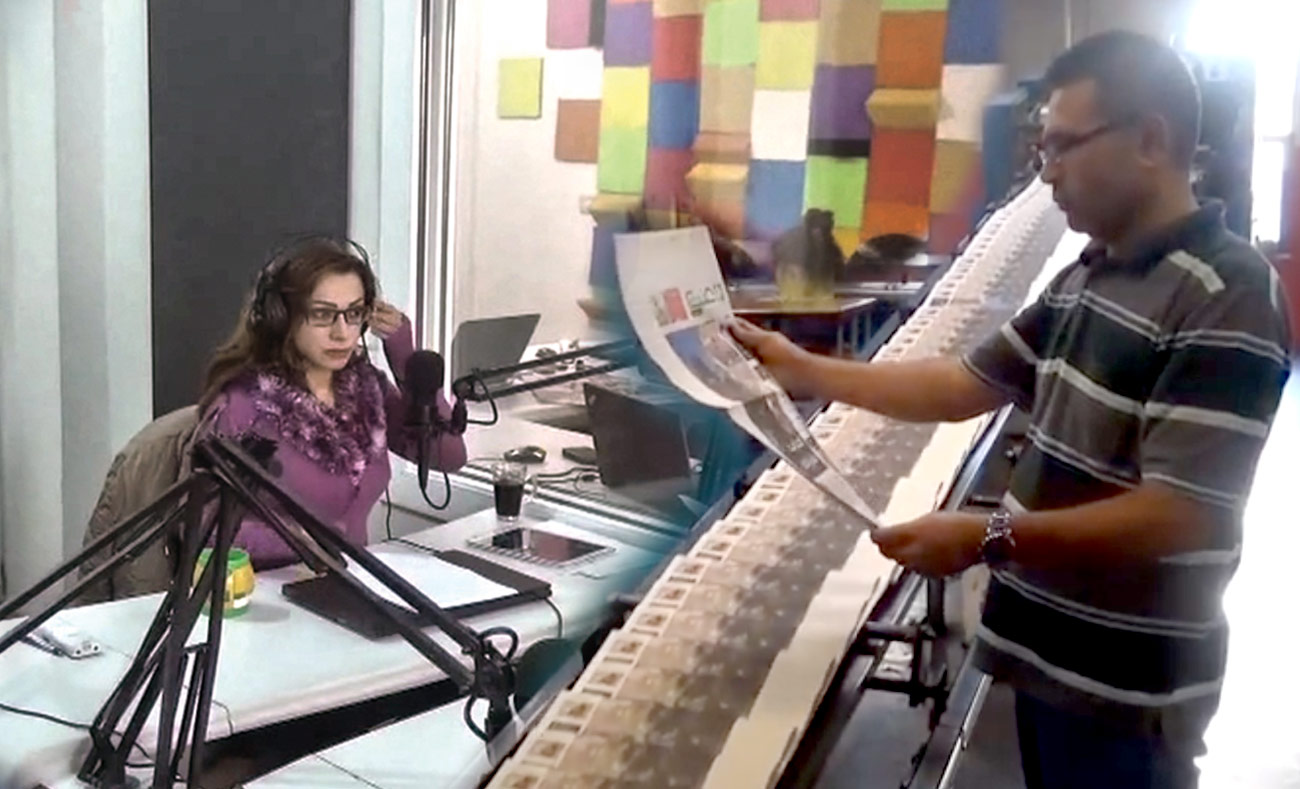






 A
A
A
A
A
A

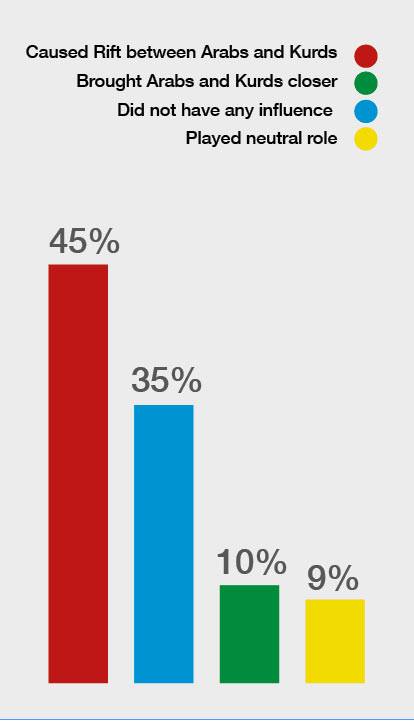


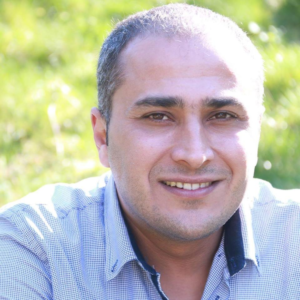
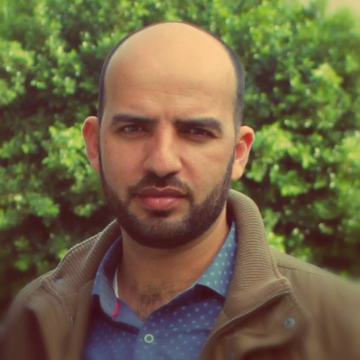
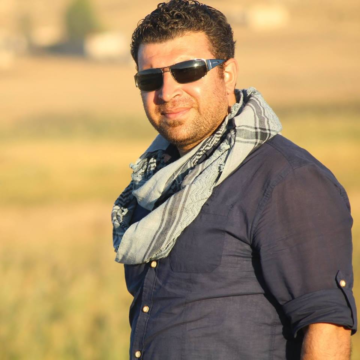
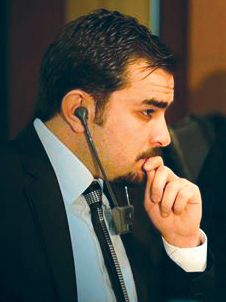

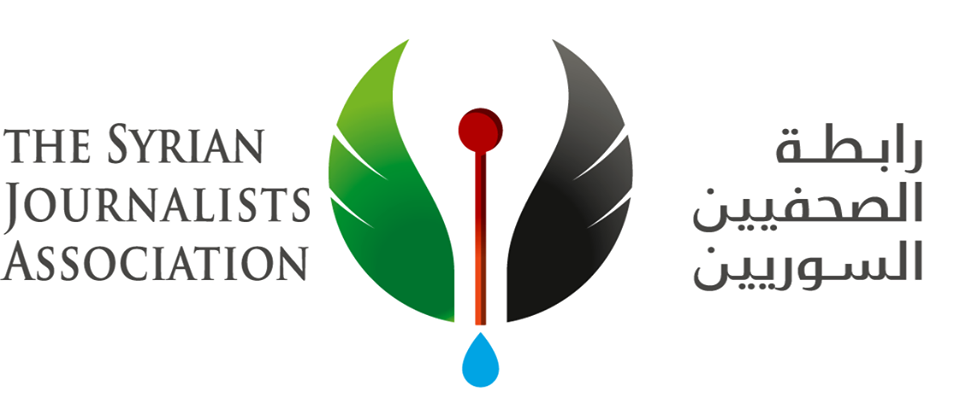


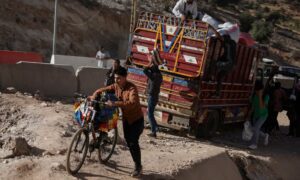
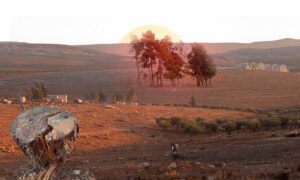
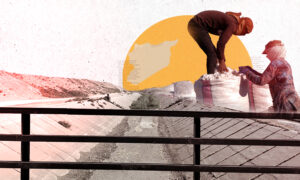
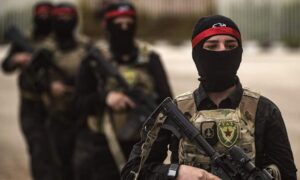
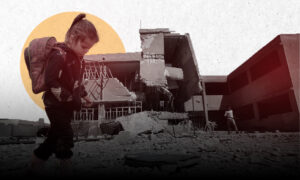
 More In-Depth
More In-Depth